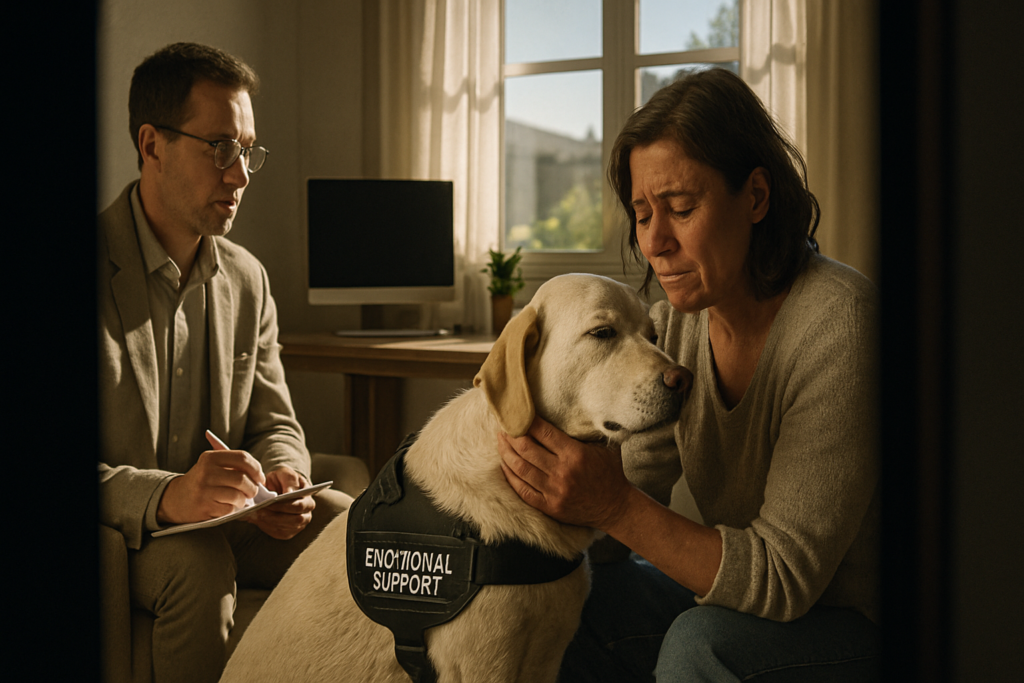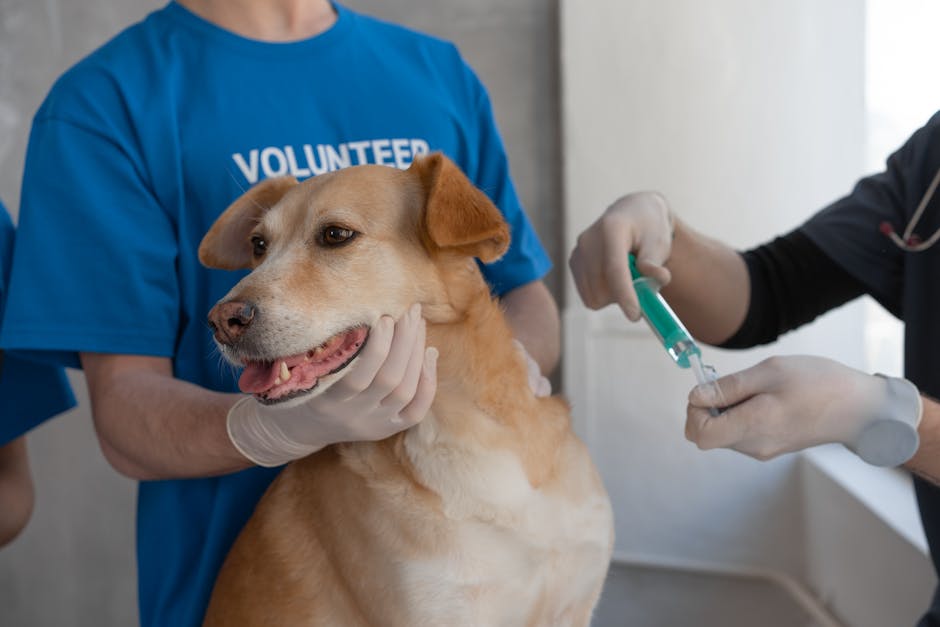Why Pet Mental Health Deserves Your Attention
Mental health isn’t just a human thing. Pets feel stress, fear, anxiety, and even depression sometimes deeply. It shows up in how they act: pacing when you leave, hiding for hours, or lashing out with no clear trigger. And when it goes unchecked, those emotional struggles can spiral into bigger problems like weight loss, illness, or chronic behavioral issues.
Veterinarians are now taking mental wellness more seriously, and pet parents are catching on too. Just like with people, emotional well being affects every part of a pet’s health. That shift in awareness is long overdue. Pets can’t speak for themselves, so it’s on us to tune in, pay attention, and respond with care and consistency. Their happiness really does depend on it.
Common Signs of Mental Distress in Pets
Your pet can’t talk, but their behavior sure can. Overgrooming licking or chewing the same spot until it’s raw is more than a quirk. It’s often a nervous habit triggered by stress. Withdrawal is another red flag. If your usually social pet suddenly retreats, sleeps a lot, or avoids eye contact, it may be shutting down emotionally. And unprovoked aggression? That’s not just bad manners it might signal discomfort or fear bubbling over.
There’s also the basics: eating and sleeping. If a dog that normally bolts its meals starts skipping them, something’s wrong. Total energy slumps or restless pacing through the night can also mean mental strain.
Then there’s the classic separation distress. If your pet panics when you’re gone constant barking, chewing furniture, accidents indoors they’re likely struggling with anxiety. And clinginess that seems sweet but turns obsessive can be a sign they’re using you for emotional regulation. These shifts may seem small, but they’re your pet’s way of waving a flag for help.
Root Causes: What Affects Your Pet’s Mind

Understanding the underlying factors that influence your pet’s mental and emotional well being is key to supporting them effectively. Just like humans, pets are sensitive to their environment, daily routine, and past experiences. Here’s a breakdown of the common root causes that can negatively affect your pet’s mental health:
Lack of Stimulation or Exercise
Pets especially dogs and highly active cat breeds require both physical and mental stimulation to stay balanced. When their energy isn’t directed toward positive outlets, it can manifest in destructive or anxious behavior.
Boredom leads to chewing, scratching, or excessive barking/meowing
Insufficient walks or playtime can cause restlessness and hyperactivity
Mental enrichment, like puzzle toys or training exercises, is just as essential as physical activity
Social Isolation or Sudden Routine Changes
Structure provides comfort, and pets generally thrive on predictability. Changes in a household be it a move, new family member, or long periods of isolation can be extremely destabilizing.
Pets left alone for long hours may develop separation anxiety
Relocations or changes in owners can create insecurity or depression
New schedules (like returning to work after remote setups) can disrupt their sense of normalcy
Trauma, Chronic Illness, or Past Abuse
Some pets come from difficult backgrounds or suffer from long term health conditions, both of which can leave psychological scars. These experiences often shape how a pet perceives safety and interacts with others.
Rescue animals may show fear, distrust, or aggression as defense mechanisms
Pets with chronic pain may display changes in behavior due to discomfort
Previous negative human interactions can affect long term temperament and trust
Key Takeaway: Recognizing these root causes is the first step toward building compassion and crafting a support strategy that truly meets your pet’s emotional needs.
Building a Holistic Wellness Strategy
Supporting your pet’s mental health starts with a proactive, whole being approach. Much like humans, pets benefit most when their mental, physical, and emotional needs are met in tandem. Here’s how to lay a strong foundation for holistic pet wellness:
Make Movement and Enrichment a Daily Priority
Creating an environment filled with stimulation and engagement can reduce boredom, loneliness, and anxiety.
Daily exercise: Tailor physical activity to your pet’s breed and energy level. This could be a long walk, active play sessions, or obstacle courses.
Mental enrichment: Rotate toys, use puzzle feeders, or explore scent games to challenge their mind.
Affection and interaction: Regular, attentive human contact be it cuddling, grooming, or talking helps create emotional security.
Nutrition That Fuels the Brain, Too
A well rounded diet doesn’t just support physical vitality it plays a crucial role in cognitive function and mood regulation.
Focus on high quality ingredients, avoiding artificial additives that can negatively impact behavior
Look for pet foods rich in omega 3s, amino acids, and B vitamins all essential for brain health
Consider Natural Supplement Support
For pets prone to stress or anxiety, thoughtfully chosen natural supplements can provide added support.
CBD oil: May help ease situational anxiety or hyperactivity (consult your vet for dosage)
Adaptogens: Herbs like ashwagandha or valerian root support the body’s stress response
Calming chews or herbal blends: Often used during travel, fireworks, or transitions
Establish a Predictable Routine
Consistent routines reduce uncertainty, which is a common trigger for stress in pets.
Keep feeding, walking, and bedtime on a regular schedule
Use calming signals (gentle voice, slow movements) to reinforce stability
Avoid abrupt changes when possible; when needed, introduce them gradually
A holistic wellness strategy doesn’t need to be complicated it just needs to be mindful. Small, intentional actions done consistently can have a significant impact on your pet’s mental and emotional well being.
The Human Factor: Your Role in Their Mental Balance
Pets don’t just live in your world they absorb it. They pick up on mood shifts, daily rhythms, even unspoken tension. If you’re anxious, distracted, or running on overload, chances are your pet notices and reacts. You may see restlessness, whining, hiding, or a loss of appetite, all without an obvious trigger. The truth is, your emotional state plays a direct role in theirs.
Start by checking in with yourself. If your pet’s acting off, ask if something in your own stress level has shifted. They’re not just coexisting with you; they’re syncing with you. This doesn’t mean you need to be cheerful 24/7, but a bit of awareness goes a long way.
The best fix? Slow, present time together. Mindful play, gentle voice, eye contact these small interactions can ground both of you. You don’t need fancy puzzles or hours of fetch. A few quiet minutes tossing their favorite toy or sitting close during your wind down routine can rebuild trust and boost their confidence.
Stability starts with connection. If you keep your energy steady and your bond strong, your pet has a safe emotional anchor and that’s one of the best mental health tools you can offer.
When to Get Professional Help
Sometimes, enrichment toys and extra walkies just don’t cut it. If your pet’s stress signals like aggression, withdrawal, or obsessive behaviors aren’t fading after consistent care, it’s probably time to bring in a pro. Vets can help rule out medical issues that may be hiding behind behavior shifts. But once you’re in the clear physically, consider a certified pet behaviorist. These folks understand the psychology behind everything from barking fits to furniture destruction.
For more complex or chronic issues, you’re not out of options. Pet psychologists and therapy based training programs are on the rise. These services cater to pets dealing with trauma, phobias, or deep seated anxiety. In some cases, even companion therapy animals have been used to soothe particularly reactive or anxious pets.
The takeaway: if something feels off and it’s not improving, don’t just hope it’ll pass. Help is out there, and it can make a major difference in your pet’s quality of life.
For pet lovers ready to take the next step, we’ve compiled practical, research backed advice in one place. If you want to dig deeper into routines, supplements, behavior correction, or stress triggers, our full guide breaks it down without fluff. Head over to the Ultimate Guide to Pet Mental Health for actionable strategies to help your furry friend thrive body and mind.


